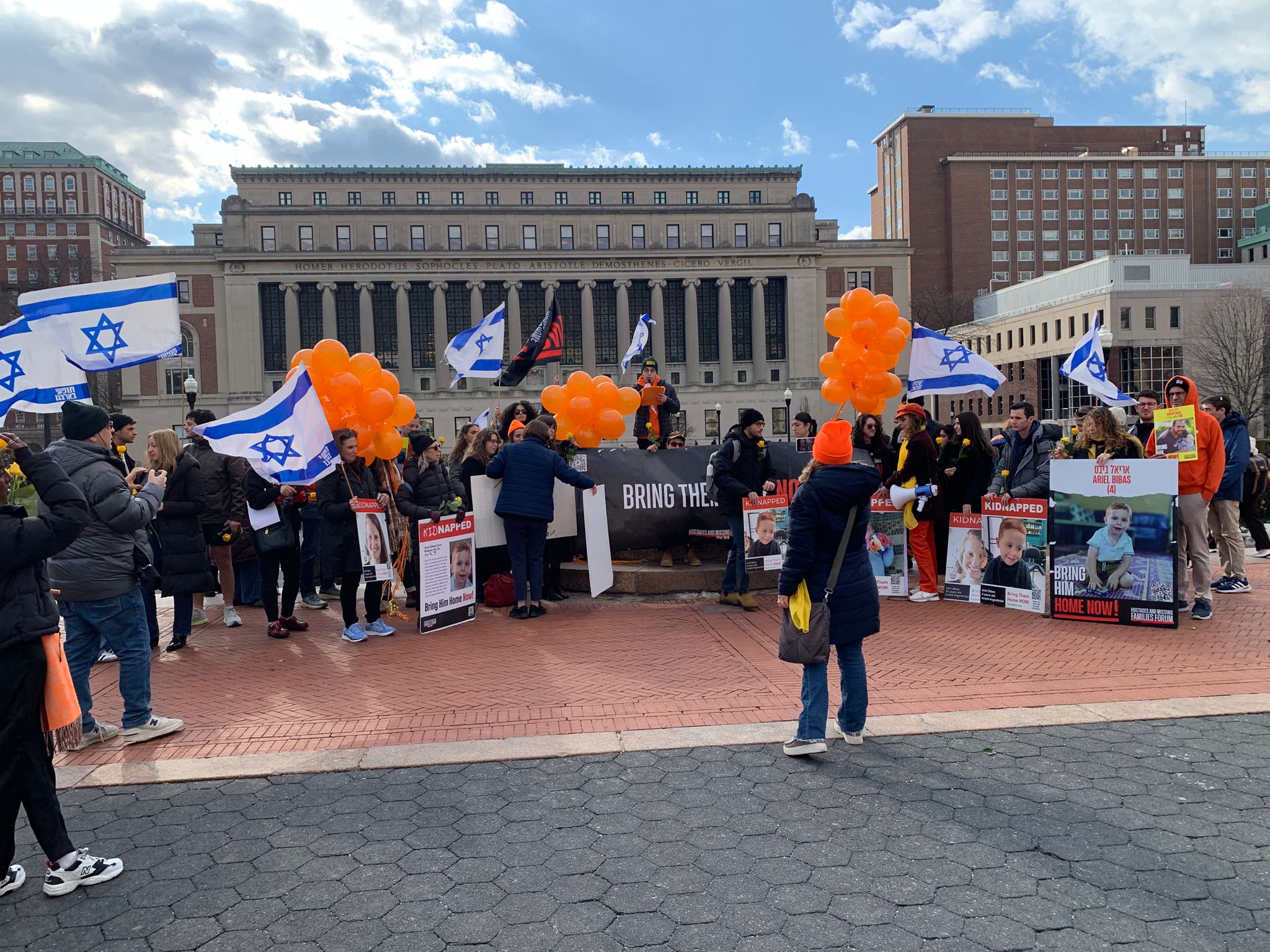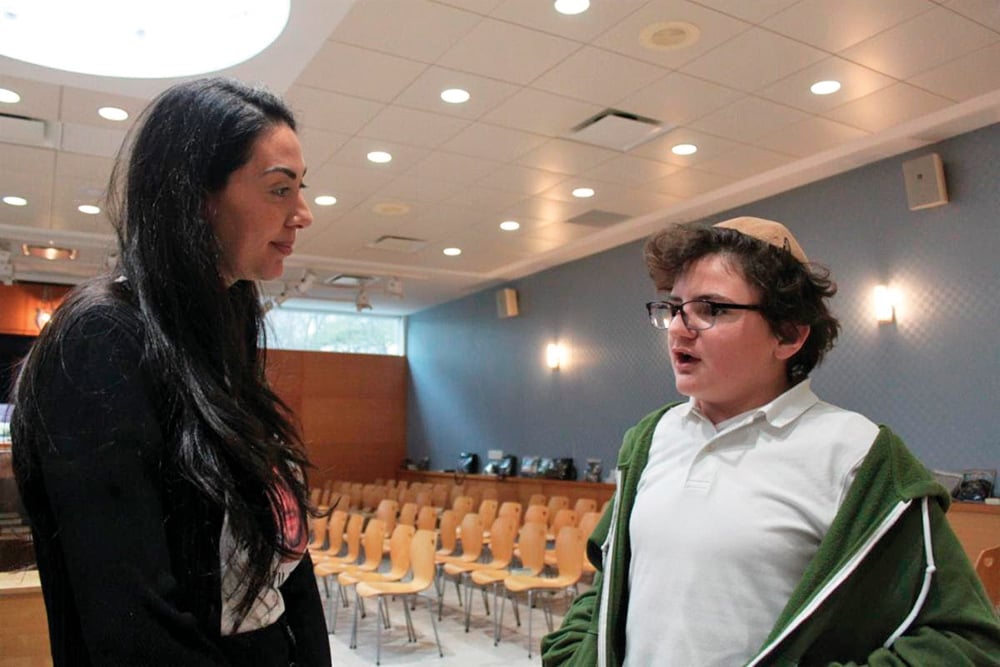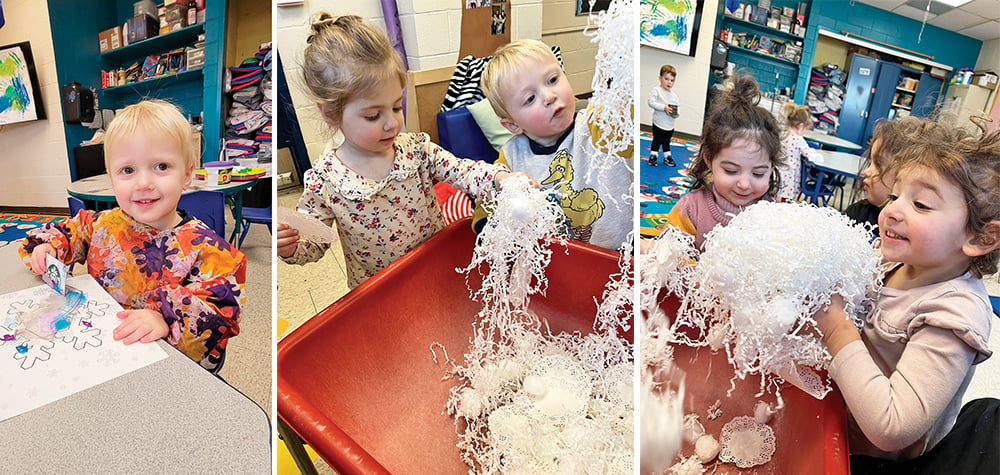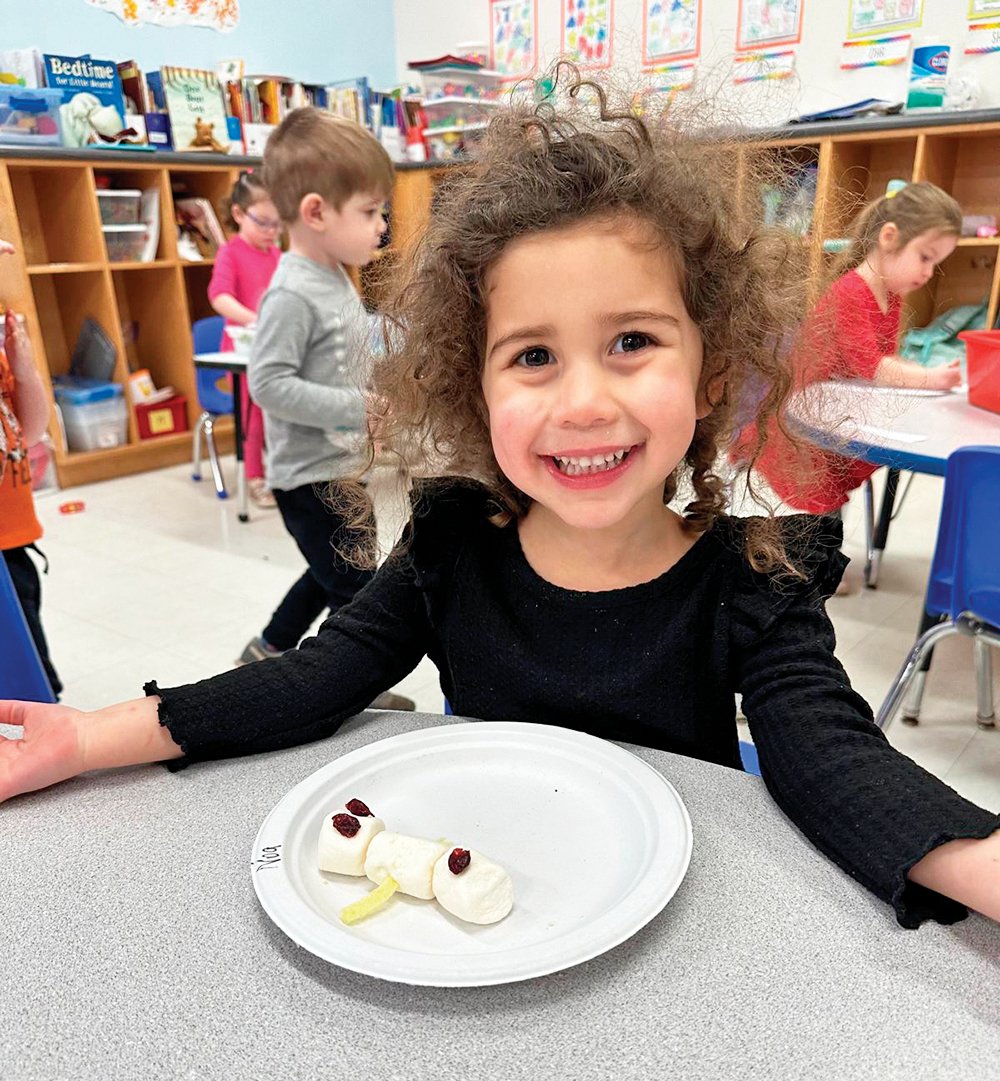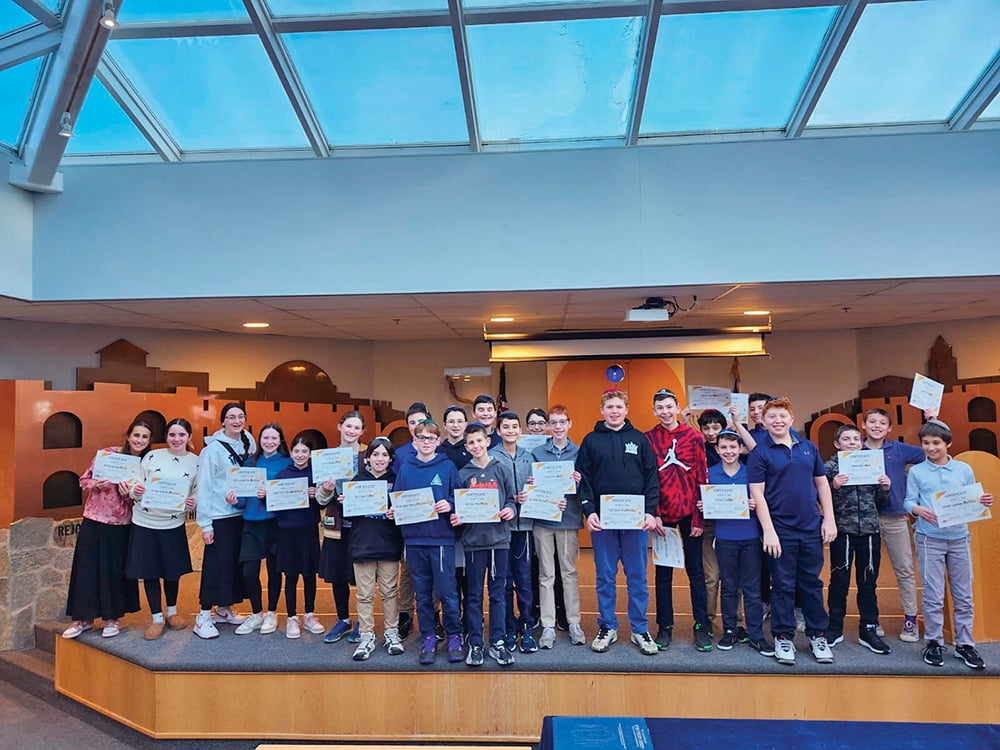This is what I learned about Jewish communal leadership from Nishmat’s graduation.

On November 28, 2024, I joined 23 extraordinary women—Yoatzot Halacha from around the world— in the Nishmat Beit Midrash in Jerusalem celebrating a historic milestone for Nishmat. This gathering marked the graduation of several cohorts of Nishmat’s Miriam Glaubach Center Yoatzot Halacha Fellows Program and was the largest in-person assembly of Israeli and international Yoatzot Halacha to date. For Rabbanit Henkin, Nishmat’s founder, it was an opportunity to shep nachas, witnessing the realization of the visionary dream she and her husband, Rabbi Yehuda Henkin, of blessed memory, had nurtured: a beit midrash where women emerge as formidable Torah scholars, uniquely equipped to assist other women in the halachic observance of nidda and mikva—helping not only the individuals they guide but strengthening Jewish communities in general.
Standing among my accomplished cohort and surveying a room filled with many other learned women, I reflected on my own journey and my place within this remarkable movement. The role of Yoatzot Halacha, now firmly rooted in Jewish communities across Israel, the United States, and beyond, was still in its infancy when I graduated high school. At the time, I had never even heard of this groundbreaking initiative. What began as an ambitious idea has since grown into a cornerstone of a global network of women answering halachic questions, providing guidance, and collaborating with rabbinic leadership in ways that were unthinkable just a generation ago.
Around the room were women who had undergone the same rigorous training, studied the same curriculum, and passed the same demanding exams—some in Israel, others in the U.S., some in person, others over Zoom—but no two of us serve in quite the same way. Some partner with synagogue rabbis to support specific communities, while others serve as Yoatzot alongside their rabbinic husbands, simultaneously embracing and redefining the role of rebbetzin. Some focus on teaching, others are producing their own exciting scholarly works such as responsa or important articles on halachic topics, and still others are finding innovative and creative ways to advance their learning and expertise to serve communities more broadly. Some have no official position but are clearly leaders and sought-after resources within their communities, serving as an address for questions without any formal salary or recognition.
The diversity in how we serve reflects not only the relative newness of the role, but also the intense hunger within our communities for female Torah scholars and leadership. This demand is both inspiring and challenging. For many of us, including for myself when I completed my course of study in 2019, the uncertainty of where and how we would serve the community—and how we could continue advancing as leaders and in our Torah studies—was somewhat daunting.
Yet, the absence of a prescribed path can also, paradoxically, become a strength. The lack of structure allows a person to pivot, to constantly adapt to the needs of different communities and individuals. This adaptability cultivates qualities that a fixed path might not—sensitivity, creativity, and a deep responsiveness to those we serve. This flexibility also echoes the very nature of the conversations we have with women. Just as there is no rigid blueprint, there is no one-size-fits-all solution in the challenges women face. Our role, grounded in the framework of halacha, requires nuanced thinking to ensure that each woman’s individual circumstances are addressed, sometimes in collaboration with other halachic experts. There is never a one-size-fits-all solution, nor is there a universal method for approaching the question in the first place. In my conversations with women, I find that sometimes I need to be reassuring, helping women understand that their experiences are shared and refreshingly normal. Yet, just as often, it is about honoring a woman’s uniqueness, acknowledging her singular circumstances and the specificity of her situation.
I personally assumed a formal role in my community in Beachwood, Ohio during the Covid pandemic. With the support of Rabbi Binyomin Blau, my formal installation at Green Road Synagogue was a beautiful yet bizarre in-person event where I addressed a group of women, all of us sitting six feet apart, masked. Reflecting on that moment in the context of the Nishmat graduation, it feels like it was a metaphor for the work of supporting women—and, indeed, the work of anyone striving to support a community. Both require navigating the paradoxical tension between distance and togetherness, between being present and allowing for space.
This need to sit with paradoxes came into sharp focus during the Nishmat graduation ceremony. Held as the country continues to reel from the long, dark shadow of October 7th, the event was a study in contrasts. The room was filled with joy as we celebrated the accomplishments of the women who had completed their training, proud of their achievements and the impact they would go on to have. Yet alongside that joy was a collective grief, a shared trauma that weighed heavily on everyone present. The faces around the room, marked by both resilience and sorrow, reflected the reality that even in moments of celebration, we were still carrying the weight of unfolding events. It was a poignant reminder that joy and pain often coexist—and that leadership demands the capacity to hold both with grace and strength.
I felt the contrast between joy and sorrow earlier that day as well. Just hours before the celebration, a group of us who had come in for the event traveled south to the Nova festival site, Kibbutz Alumim, and Sderot. I had debated whether it was appropriate to go, knowing the emotional transition would be difficult. I was also uneasy about the possibility of it feeling like trauma tourism—garish and performative. Before the trip, I shared my concerns with my daughter’s teacher, an Israeli shaliach from Sderot. He looked at me and simply said, “For a Jew to tell another Jew, ‘I’m here for you, I’m thinking of you’ —how can that be bad?”
I took those words to heart. That morning, we simply stood and listened. We heard the stories of those who, despite their unimaginable grief, found solace in sharing their experiences. As they spoke of rebuilding projects and the return of life to their communities, their love for their homes and pride in their resilience were unmistakable. To deny the joy in their words would have been as wrong as denying their grief—both were deeply authentic, interwoven, and profoundly real.
The experiences of that week—the graduation, the stories of resilience, strength, and determination, and the shared sorrow and pride etched into every face—brought into sharper focus what it means to support the Jewish community. It’s strikingly simple to articulate but profoundly challenging to achieve: showing up, being present, sitting with someone’s pain, honoring their unique story, and, when welcomed and requested, working tirelessly to find solutions.
This trip immeasurably deepened my gratitude for Nishmat—not just for the rigorous education and the title and certification it has granted me, but for the unique ethos of leadership it has instilled within me. Nishmat demands an extraordinary blend of rigor and humility from its fellows: mastery of halacha combined with the courage to admit what we don’t know and the wisdom to listen. This perspective on leadership is not only well-suited for Yoatzot Halacha, but also offers a profound model for broader Jewish communal leadership.
Our communities, now more than ever, need strong male and female leaders equipped to guide us through increasingly complex challenges. Anyone seeking to lead during these times would do well to learn from Nishmat’s example. Those who retreat to ivory towers risk becoming out of touch with the people they seek to serve, coming across as arrogant and irrelevant. Yet, those who lack essential knowledge or tools can cause significant harm; even the most empathetic and charismatic leader, without a solid foundation of expertise, may offer misguided advice, inadvertently undermining the trust and stability they mean to foster.
We need leaders who draw from deep reservoirs of expertise, humility, and yirat shamayim to inspire individuals to find meaning in their own practices while fostering pride in belonging to a vibrant, observant community. The pressures of contemporary life, along with the challenges of sustaining a Jewish identity in a rapidly changing and turbulent world, require leaders who are not just resilient, but adaptable. By modeling these qualities, they help their communities meet today’s challenges with strength and confidence, while staying true to the very traditions that sustain us.
Adina Blaustein is the Content Team Director at Aleph Beta and the Yoetzet Halacha at Green Road Synagogue in Beachwood, Ohio. She is also a Sefaria Word-by-Word fellow and is writing a book on the weekly haftarah. Visit www.adinablaustein.com to learn about her upcoming events.



